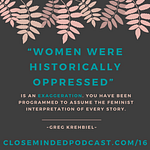[Make sure and listen to the podcast episode with Pat, and don't forget to scroll down for details on how to WIN a copy of the book!]
Pat Flynn is one of the most interesting people I've ever met, and that fact alone is sufficient proof of the potency of his philosophy--after all, such a response is exactly what one would expect from a person pursuing a lifestyle of generalism.
So what is generalism? It's the idea that you should develop a wide variety of skills--not expert-level, but somewhere in the range of proficient to great--and combine them into something unique to the world. Generalism is better understood as a contrast to its opposite approach: specialization. According to Flynn, you should NOT focus on being the world's best guitarist, weight lifter, accountant, mechanic, or whatever your chosen discipline is. The main problem with specializing is that it sets you up for failure, since success at specialization relies upon comparison to others, and success is either impossible to achieve or, once achieved, extremely difficult to maintain. Specialists, writes Flynn, have "built unhappiness into the system."
On the other hand, with generalism you are free to pursue many different skills to a point of basic proficiency (or even greatness), without your success depending on comparison to others. You can pursue skills for their own sake, of course (maybe you simply enjoy playing piano but have no need to be the best at it), but the real power comes with "skill stacking"--combining multiple skills into something unique, valuable, and monetizable.
Pat dives deeply into his 5 Key Principles of Generalism:
Skill Stacking > Specialization
Short-Term Specialization | "Good generalists are really just short-term specialists in the sense that they focus on one or two things at a time."
The Rule of 80 Percent | If 100% is perfection, the greatest in the world, then don't ever attempt to develop a skill beyond 80%.
Integration > Isolation | "Practice only the things you need to get good at, as they pertain to the task at hand."
Repetition and Resistance | Practice, and "find ways to make it harder on yourself."
There is a lot here, and Pat's funny and whimsical personality shines through his writing. He really does want to help get you started on the road to success. Peppered throughout the book are some helpful and practical guides: a one-page program for developing physical preparedness, a checklist for practicing daily discipline, a cheat sheet for maintaining focus and meditation, and a one-page spiritual practice plan.
In How To Be Better At (Almost) Everything, Pat Flynn has delivered a philosophically rigorous (yet utterly readable) and intensely practical exhortation to generalize rather than specialize, and I found it enriching, stimulating, challenging and convincing.
Make sure and listen to my conversation with Pat on the podcast!
Subscribe here in your favorite podcast app or use the play controls at the top of this post.
++++++++++++++++++++++
Books mentioned in the episode:
Edward Feser | Five Proofs for the Existence of God
Peter Kreeft | Love is Stronger Than Death and Socratic Logic
Ludwig von Mises | Human Action
Murray Rothbard | Man, Economy and State
William Zinsser | On Writing Well
Strunk and White | The Elements of Style
Gary Halbert | The Boron Letters
++++++++++++++++++++++
Want to WIN a FREE copy of Pat's book?
Follow the instructions for ways to earn extra entries!
(You'll be subscribed to my email list, but you can leave at any time after the giveaway.)
If you pre-order the book, go here to get lots of goodies from Pat: www.howtobebetterbook.com
++++++++++++++++++++++
Thanks to LEVV and David Ramirez for the intro/outro music.














